Alumni Profile: Navigating Medicine & Motherhood
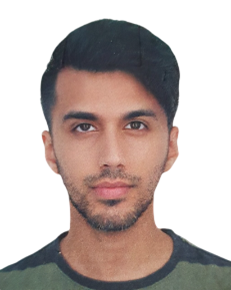 | By Sanjay Devaraja, Editor, The LKCMedicine |
Motherhood can be as personally rewarding as medicine, and similarly requires placing another person's needs before one's own. However, balancing the two roles can be challenging. Doctors must prioritise patient care, often to the detriment of their own needs and those of their families. Female doctors tend to encounter challenging choices regarding if, when, and how many children to have while simultaneously striving towards their career objectives.
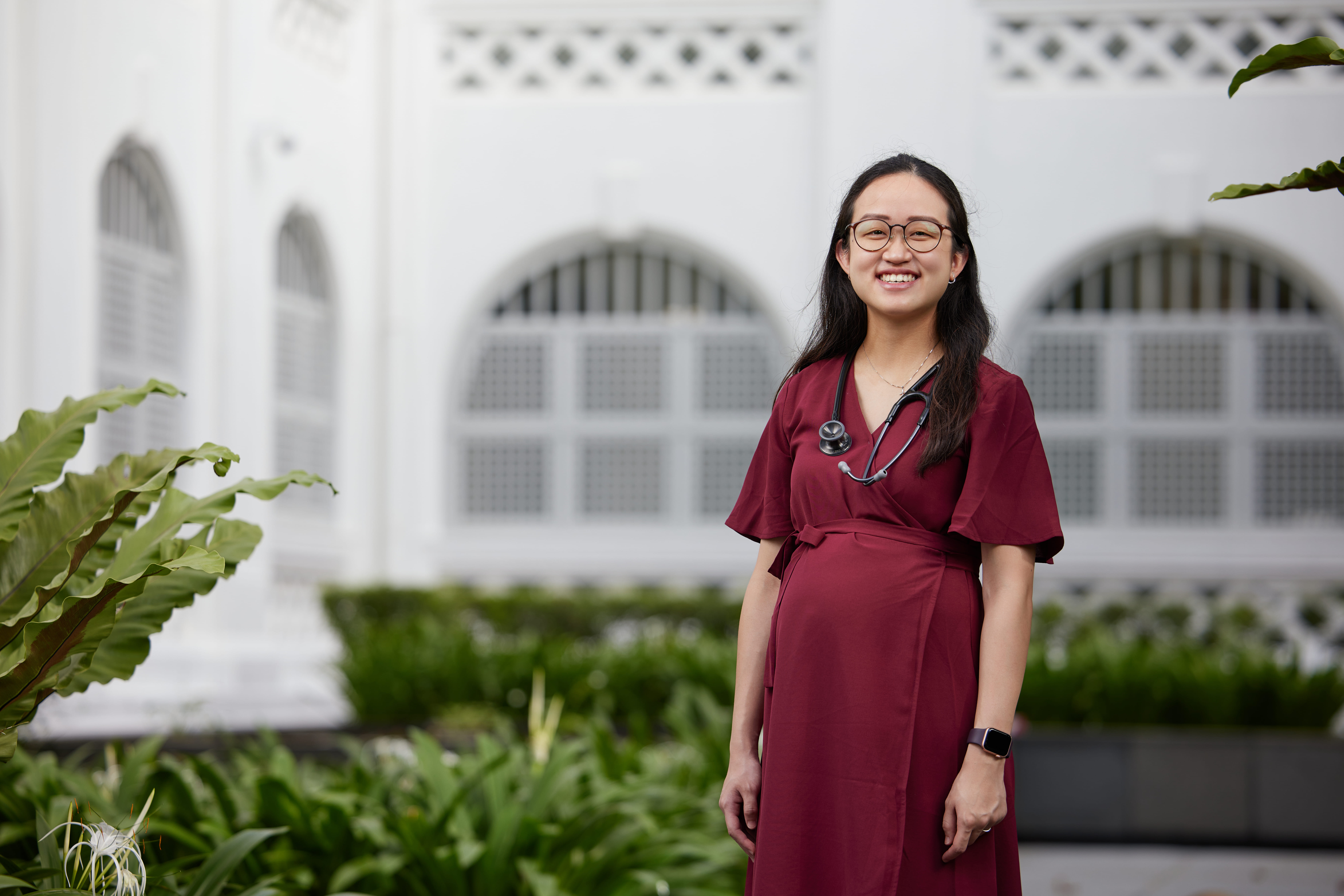
Dr Yang Sin Yee (Class of 2020) is a medical officer currently pursuing her internal medicine residency training with the National Healthcare Group. She received the Most Valuable Player (MVP) Award and the Peer-Teaching Excellence Award at the NHG Residency Awards 2023, as well as the Junior Doctor Teaching Award at the NUS Medicine Teaching Awards AY2022/23. She recently became a mother for the first time.
Dr Yang, whose mother is also a doctor in private practice, was inspired by her to pursue a career in medicine. Balancing the competing demands of motherhood and a career in medicine is a challenge that many doctors and doctors-in-training experience. As Dr Yang embraces motherhood, she shares with us how she juggles both caring for her baby and her patients.

How has life as a doctor been after graduation?
Life has been busy, but also very fulfilling! I got married to my husband Andrew during my PGY1 (Post-Graduate Year 1) year in 2020. Subsequently, I started NHG Internal Medicine residency training in 2021. During this time, I was very fortunate to rotate through different departments in NHG and have learned a great deal from my seniors, friends, and patients. I have also had opportunities to be more actively involved in medical education, teaching both LKCMedicine and NUS Yong Loo Lin (NUS YLL) medical students and organising the NUS YLL Year 5 Mock Objective Structured Clinical Examination (OSCEs) in 2023. This year in March, my husband and I were delighted to welcome our first child, Laura.
What challenges did/do you face as a practising doctor that you didn’t learn in the classrooms?
One major challenge is the physical and emotional exhaustion from work. Working long hours daily, with overnight calls and long stretches between our off days, takes a toll on most junior doctors, resulting in us becoming exhausted and burnt out. When this happened, it was definitely challenging to keep pushing myself to give my best for my patients.
Another challenge was learning to adapt to different work environments. Each hospital has different workflows, some also have different IT systems. Thus, it took a while for me to adapt to each new hospital and department that I was rotated to, especially during my PGY1 year. During residency, we are also frequently rotated to different departments every few months. Thus, all these experiences have trained me to prepare myself in advance and adapt fast!
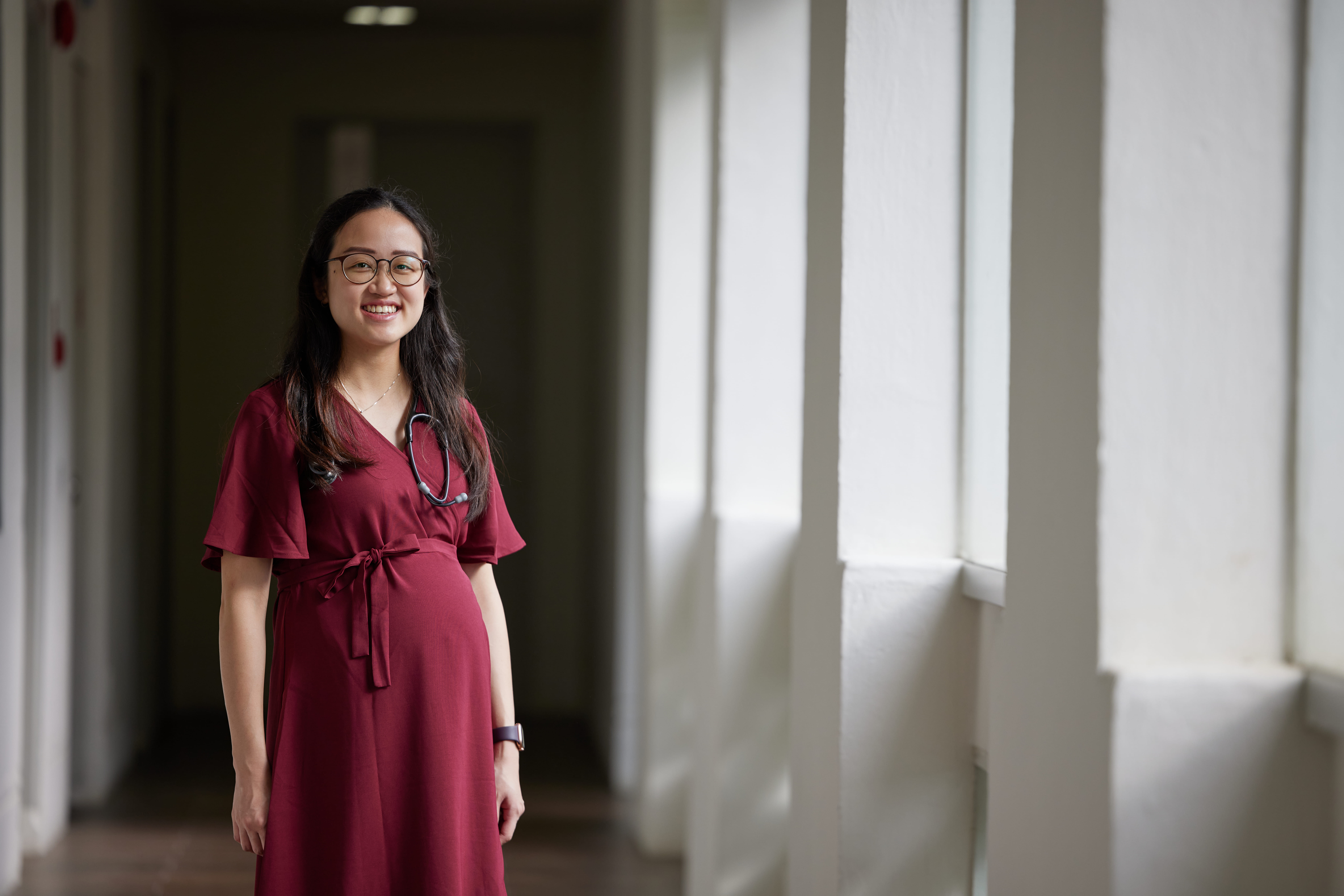
Doctors must prioritise patient care, often to the detriment of their own needs and those of their families. How do you manage this?
I definitely found this challenging and frustrating at times, especially during pregnancy. Coping with a busy workload while battling nausea and giddiness during my first trimester of pregnancy, was not easy. Furthermore, I also had to be mindful of my baby’s safety, i.e. when taking care of patients on cytotoxic medications, transferring critically ill patients to/from scans.
I really appreciated my colleagues’ and seniors’ understanding during my pregnancy. For example, one of my friends walked all the way from Tan Tock Seng Hospital (TTSH) to the National Centre for Infectious Diseases (NCID), just to assist in inserting an indwelling catheter for a male patient who was undergoing chemotherapy, so that I would not need to be exposed to the patient’s bodily fluids whilst pregnant.
I have also learned that it is important to take a few moments to prioritise personal needs (i.e. food and water, using the toilet) whenever possible, so that one can continue to work effectively. To avoid burnout, finding opportunities to rest and recharge are essential. Additionally, good camaraderie and teamwork go a long way in taking care of each other. We often check if each other needs help or we buy food for each other when we are busy.
Lastly, my husband and family’s support are invaluable. Our families are very understanding of our hectic schedules, and try to help however they can, such as preparing food for us so that we would have a nutritious dinner at the end of a long workday.
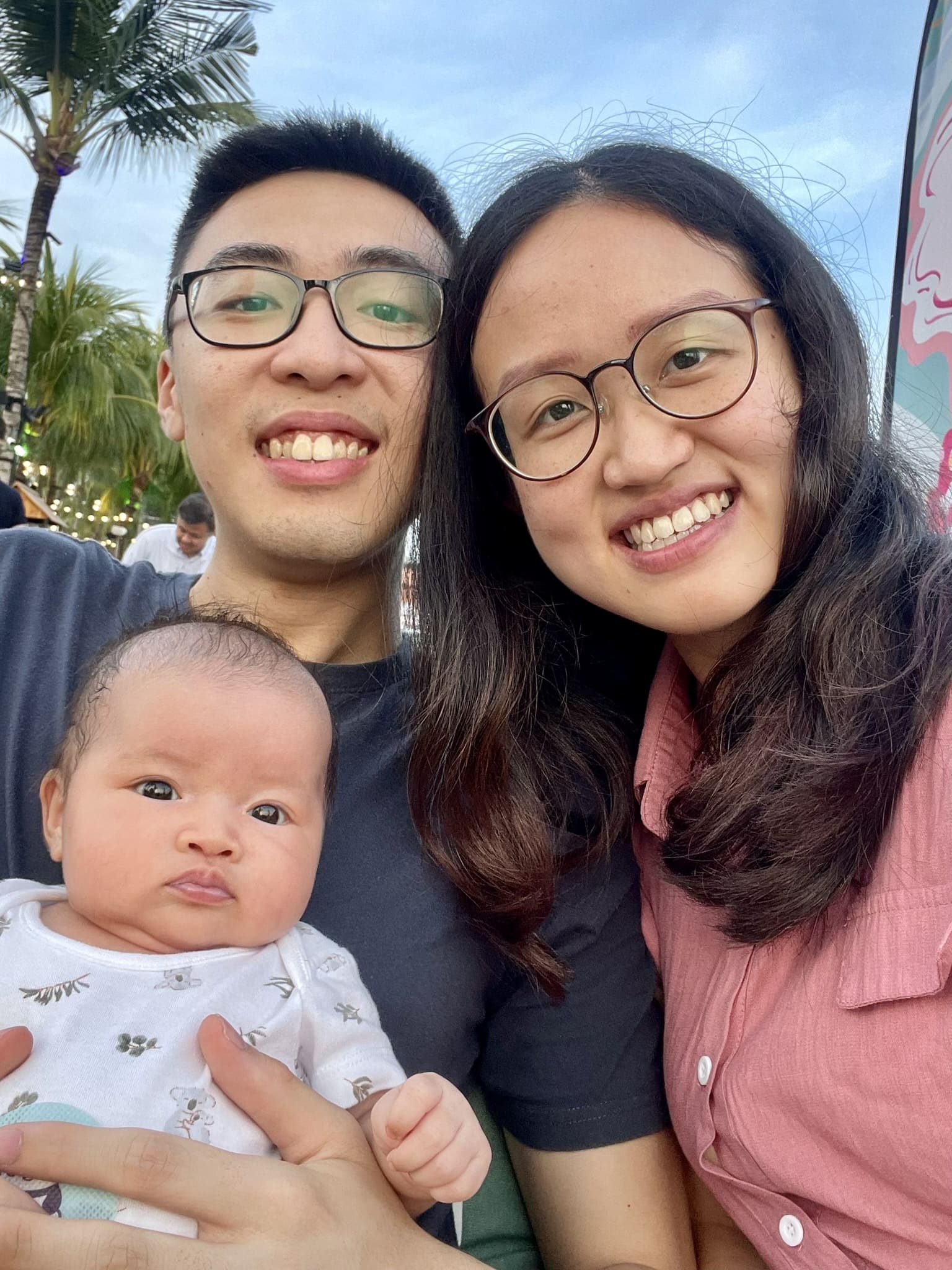
It is often reported that women prioritise career advancement by delaying their plans to start a family. What is your take on this as a first-time mother?
Starting a family was a decision that my husband and I grappled with for quite a while. It was helpful to seek advice from colleagues, seniors, and friends, both at work and in our church. We also had to consider our career milestones, such as training exams, and my husband’s National Service commitments. Having children later may not be wise due to the possibility of infertility, and risks associated with advanced maternal age.
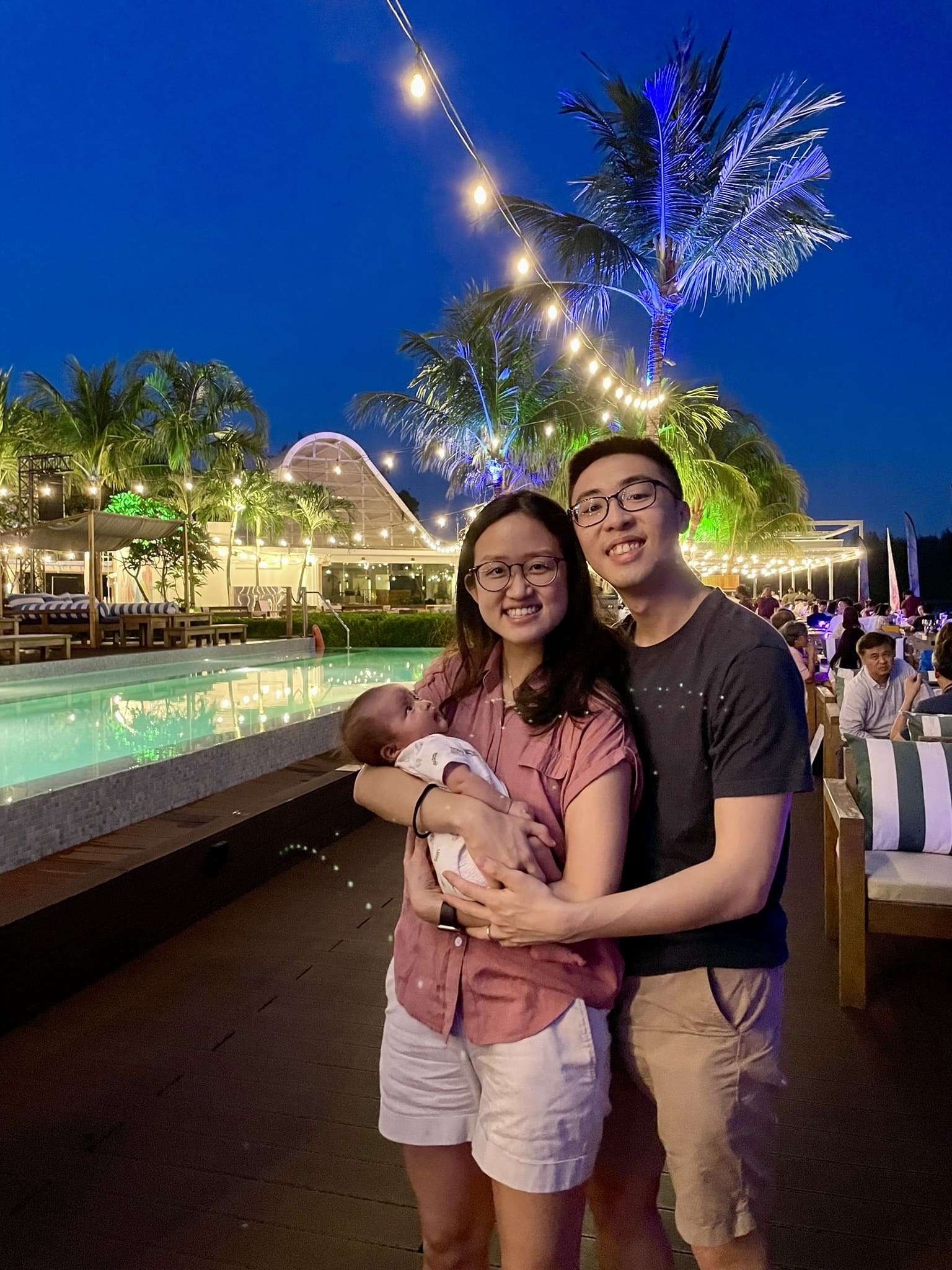
Ultimately, while my career is important to me, I have come to realise that family is irreplaceable. Thus, we eventually decided to start a family while we were still undergoing our respective residency training. In this aspect, I’m greatly inspired by my mother, who had three children during her Obstetrics and Gynaecology training, and who is a great mother despite her demanding career.
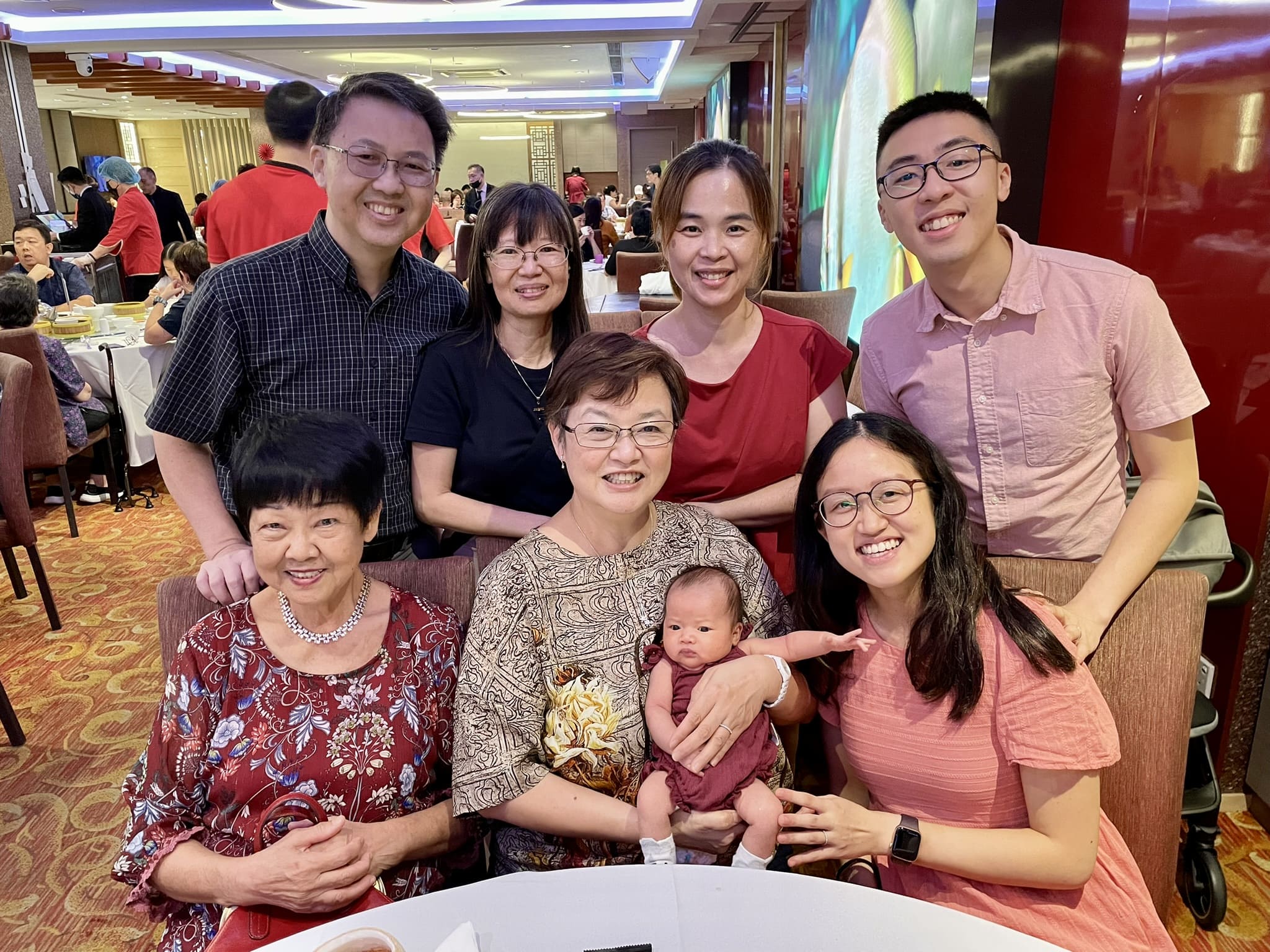
As a female doctor, do you believe that your career progression would be slowed by motherhood?
That is definitely true, but I believe that may not necessarily be detrimental.
Taking maternity leave after giving birth meant that I would be at least four months behind my peers, who did not have a child during residency. Caring for children also requires a lot of time, effort, and commitment. This means that I would have to make sacrifices in other aspects of my life. The balance between motherhood and career is not an easy one to strike, but I hope to be able to do so with support from our families.
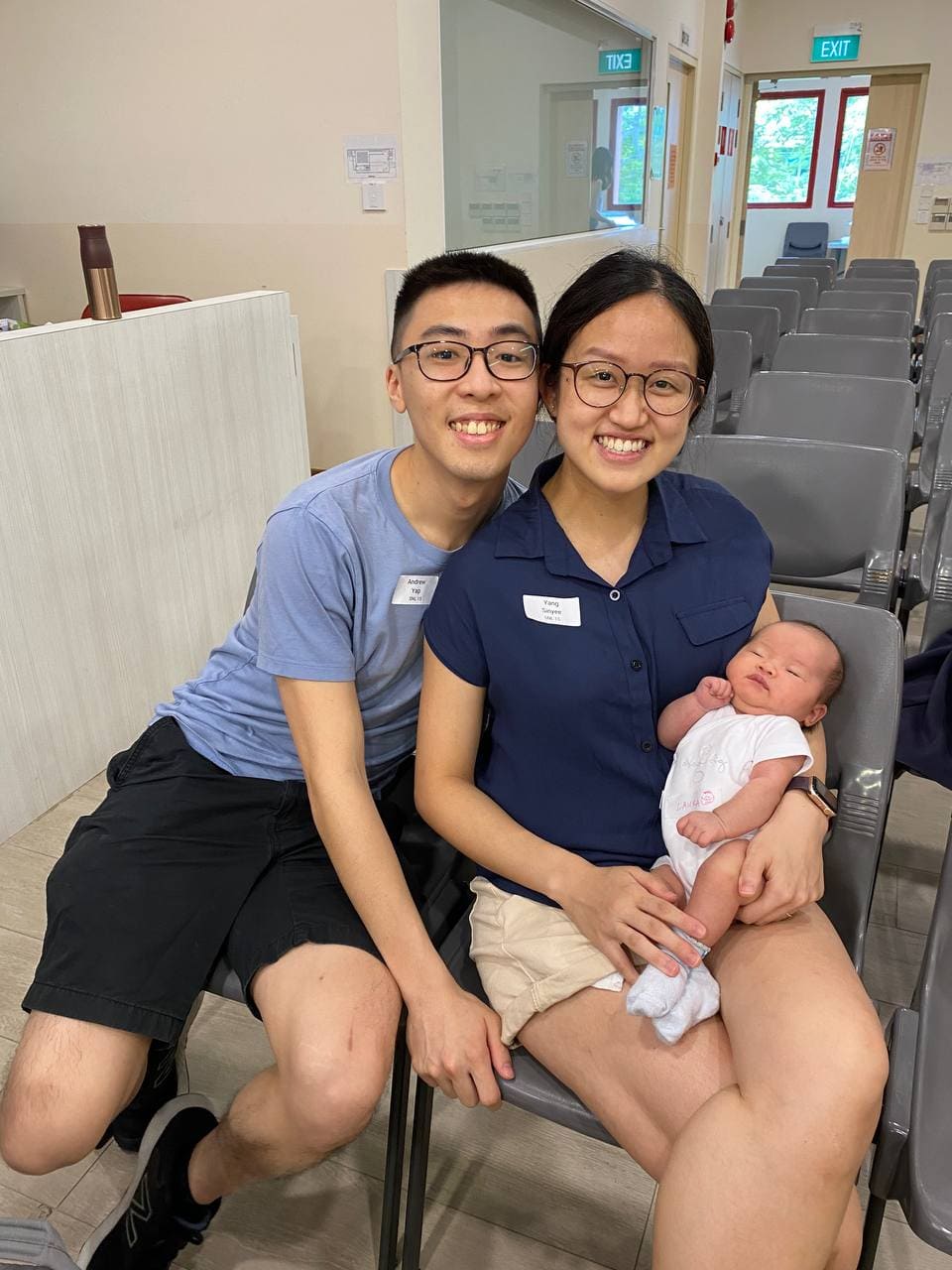
After giving birth during the third year of my IM Junior Residency training, I decided to take a break before applying for Senior Residency. Overall, I believe that taking more time to complete residency can be helpful as well – it gives me more years of working experience, and more maturity in my clinical decision making. Hopefully in the future I will be more ready to handle complex patient cases with wisdom.
What were some of your fond memories at LKCMedicine?
This question immediately brings to mind great memories of singing with MedLee, the LKCMedicine acapella group started by my friends and I during our M1 year! We had a lot of fun making music together and performing for both internal and external events. I also enjoyed spending time with friends in the House rooms and exercising (i.e. jogging around the NTU campus in M1/M2). During the clinical years, we also had a great time exploring different hospitals (and the delicious food options nearby) with my teammates. Finally, I truly appreciated the kind and supportive faculty members, especially my House tutor Sister Ramani, who always took time to catch up with us and encourage us, despite her busy schedule.
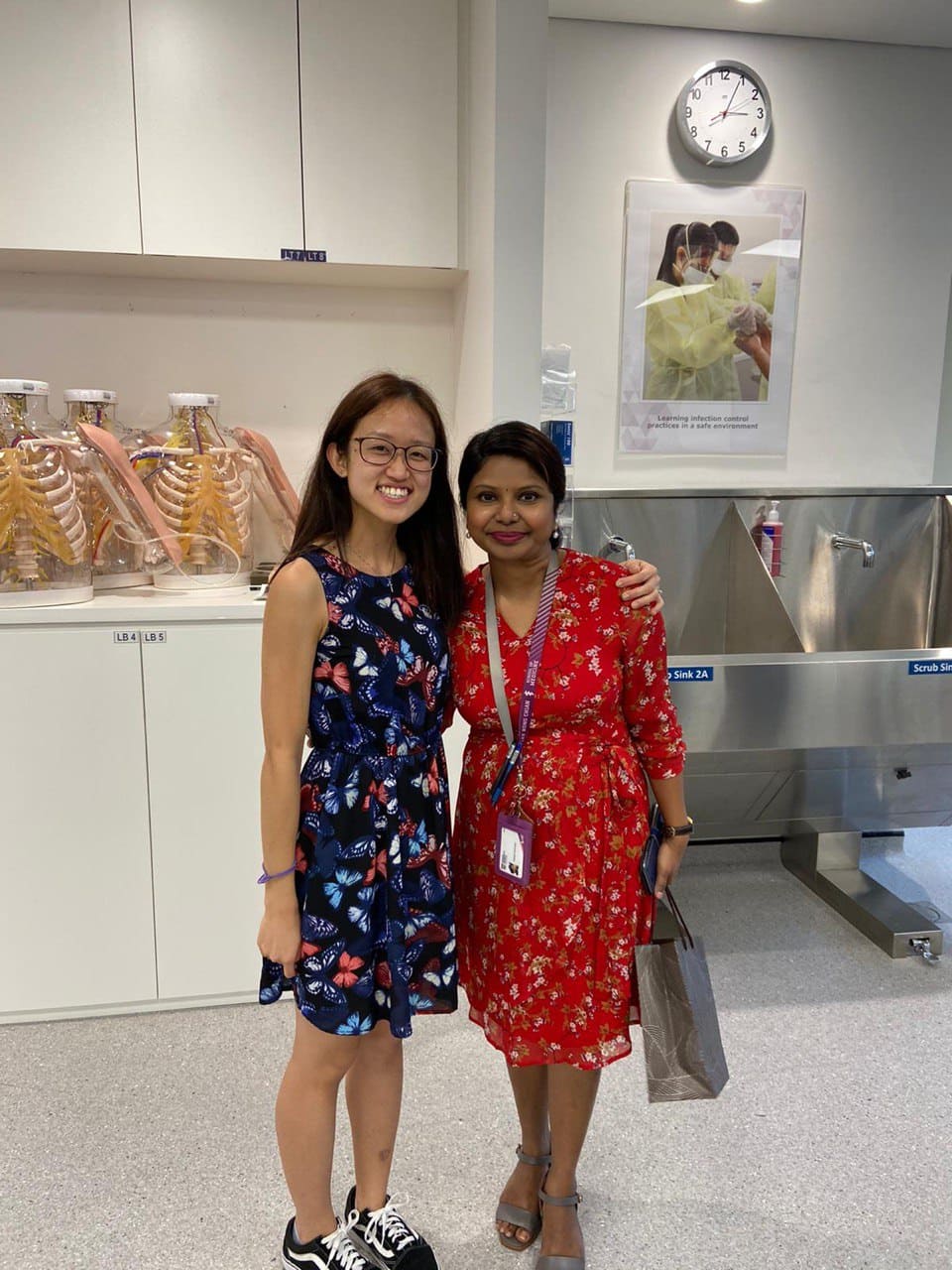
How is LKCMedicine’s curriculum unique?
LKCMedicine’s curriculum structure is directed towards applicability in clinical practice, which also helps to contextualise the knowledge that we gain and link it to the patients that we see daily. Team Based Learning (TBL) also trains us to ask questions sensitively and articulate our thought processes when making decisions, which is something that I still practise daily during ward rounds with my seniors.
There is a strong emphasis on continually developing skillsets such as communications and clinical skills, from M1 to M5. I believe that these are essential to working well as a doctor, and I have certainly found the training to be invaluable in my own practice. Nonetheless, it has been quite a few years since my graduation, during which more changes have been made. I look forward to seeing how the new NTU MBBS curriculum will help to better prepare medical students for medical practice.
How has LKCMedicine shaped your aspirations?
I hope to specialise in palliative care; to help patients with terminal illnesses minimise suffering and maximise their quality of life. While some may view ‘living as long as possible’ as the ultimate goal, others have very different priorities, such as personal independence, or time with family.
LKCMedicine has taught me to view my patients as people to be helped, rather than medical conditions to be cured, and to tailor treatment to fit their value systems and care preferences. For example, through the Integrated Communications Practice (ICP) sessions, we were trained to elicit our patients’ ideas, concerns, and expectations (ICEs) about their care. In senior student years, we were then trained to identify and address these ICEs to navigate difficult communication situations, such as breaking bad news or service recovery.
I try to bring this mindset with me to work. Although it can be difficult to achieve in a busy day, I find it very rewarding when I get a chance to slow down and talk to them and their loved ones to understand more about their personhood, such as during Advance Care Plan discussions.
For example, I cared for a tetraplegic patient who had been hospitalised multiple times for recurrent episodes of aspiration pneumonia. His illnesses often made him confused and drowsy, but he consistently expressed a desire to be at home during his lucid periods. After deep conversations with his wife and son, they eventually decided to prioritise his wishes and care for him at home, instead of further prolonging his hospitalisation for intravenous antibiotic therapy. I was very thankful for the opportunity to talk to his family to understand his preferences and use my experiences to guide his family to make decisions which were in line with his wishes.
What is your advice to both prospective and graduating students?
University is an important time to develop and grow as a person, so I would recommend to not spend all your time on academics! Instead, find a balance between studying, extracurricular activities, and hobbies that you enjoy. I believe that this will help you to mature in an all-rounded way and teach you important life skills. For example, my experiences in MedLee have honed my skills in leadership, planning and organising events, people management, coping with stress and problem-solving – all of which have come in handy after graduation.

Additionally, it is important to be kind and loving to others around you. This can be difficult when going through stressful times in school or work, but kindness and empathy go a long way to make the journey happier for everyone.
Lastly, being a doctor is a heavy responsibility to bear. Along the way, there will be times when we are jaded, exhausted, and tempted to give up. In those times, it is still important to do what is within your capacity for your patients and carry out your duties as best as you can, because we have been entrusted with this duty.
